Apathy’s Grip
Remember How I Used to Ride a White Horse
Two characters are trapped in a colourless existence of apathy, their reality slipping away without them noticing.
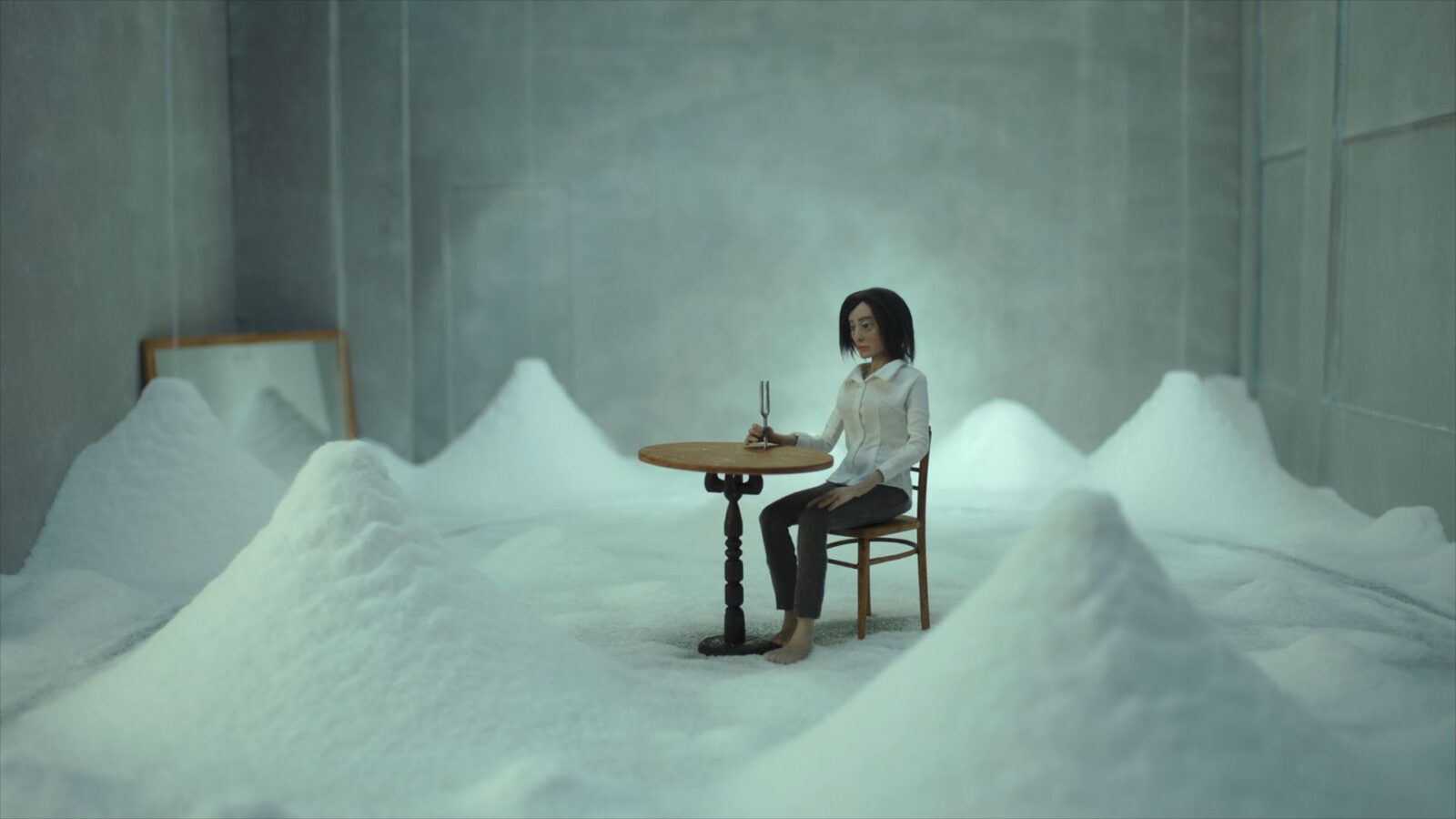
When was the last time you woke up from an incredible dream? Still half asleep, disorientated, you might have lingered in that liminal state of possibility. Knowing you would have to wake up eventually, you’d enjoy the remaining dizziness before crawling out of your unconscious mind and into your everyday routine. The power of dreams often functions as the premise of cinematic explorations. Now, picture a world where work, repetition, and indifference seep into every fiber of the fabric of your reality. A world in which even your subconscious is tainted by a mechanical grind, drenched in gray paint, allowing no escape from a never-ending cycle? Through meticulous stop-motion animation, Remember How I Used to Ride a White Horse delves into the lives and dreams of its protagonists, who seem to be affected by such a condition, trapped in a colourless existence of apathy. Dreams have started to fade.
Throughout the film’s 10-minute runtime, we get to know two characters, connected not by personal ties or interaction but merely by proximity: a barista and a customer, both confined within the White Horse Café. In only a few shots, Ivana Bošnjak and Thomas Johnson evoke a melancholy atmosphere that sets the stage for the unfolding experimental narrative. The gloomy tone is greatly indebted to the dreary-faced stop-motion puppets who go about their days with an absent-mindedness that can only imply routine. The barista prepares a coffee, barely even looking at what her hands are doing, instead gazing at the mirror in front of her.
The architecture of the White Horse Café, with its exchangeable furniture and minimalist design, fumes with anonymity. There are no windows in sight, leaving only a mirror to reflect the interior, giving the place an extra sense of isolation—as if the outside world doesn’t exist. The protagonists’ behavior within the café further supports that idea. The sole customer, fixated on his recording device, listens to the same sounds the coffee machine produces. With his headphones on, he effectively insulates himself within his own experience, listening to digitally mediated reproductions of the sounds surrounding him. These characters fail to connect to each other or with their surroundings, let alone with themselves or their thoughts. Even when the café literally starts to shake, they remain indifferent—their reality slips away without them even noticing.
Remember How I Used to Ride a White Horse doesn’t serve its meaning(s) on a silver platter, but clues might be hidden in the surreal interludes that interrupt the monotonous life at the White Horse. Multiple seemingly escapist narrative fragments follow after one another, establishing a fast and disorienting rhythm while also paradoxically echoing the characters’ mundane realities. The café’s aforementioned mirror returns as a motif in the barista’s visions. By displacing objects from the White Horse’s bleak reality into the fantastical realm, it becomes a projection of their subconsciousness in a way that would profoundly delight any Freudian dream analyst. Amid these sequences, a knight is seen chopping wood. Doesn’t the sound of the ax striking the wood evoke a faint resemblance to the metallic thud when you tap the coffee sieve to extract the grounds? Doesn’t the knight’s perpetually replenished labour mirror the barista’s Sisyphean entrapment in a relentless cycle of meaningless tasks?
Associatively stacking these metaphors on top of one another, echoing the often mechanised modern labour many of us suffer from, Bošnjak and Johnson gradually weave a world that suffocates its characters with monotony. Their lives revolve around the café’s stagnant offerings, and to make matters worse, they both have become numb to their predicament. Trapped in this existence, they embody a sense of lifelessness. Even their dreams and fantasies are distorted reflections of their realities that no longer contain subversive traces or desires.
Are we, too, living in a cycle of day-to-day predictability? Have we grown too accustomed to constant indifference and continuous distraction? Just think of how we rely on our technologies to provide us with easily accessible and never-ending streams of information, pictures, and sounds; how easy it is to succumb to life on autopilot and to disengage from potentially painful realities. Changing how we think, how we organise our lives, and even how we might connect to other people is not always easy, but the first step must always be to snap out of our indifference, acknowledge what is happening to us, and let ourselves be touched again. That’s exactly what the voice counting from one to three in the film’s closing moments suggests: the possibility of the characters finally waking up, hinting at a faint sense of liberation.
This text was developed during the European Workshop for Film Criticism #1—a tandem workshop set during Filmfest Dresden and Vienna Shorts—and edited by tutor Ricardo Brunn.
The European Workshop for Film Criticism is a collaboration of the European Network for Film Discourse (The END) and Talking Shorts, with the support of the Creative Europe MEDIA programme.

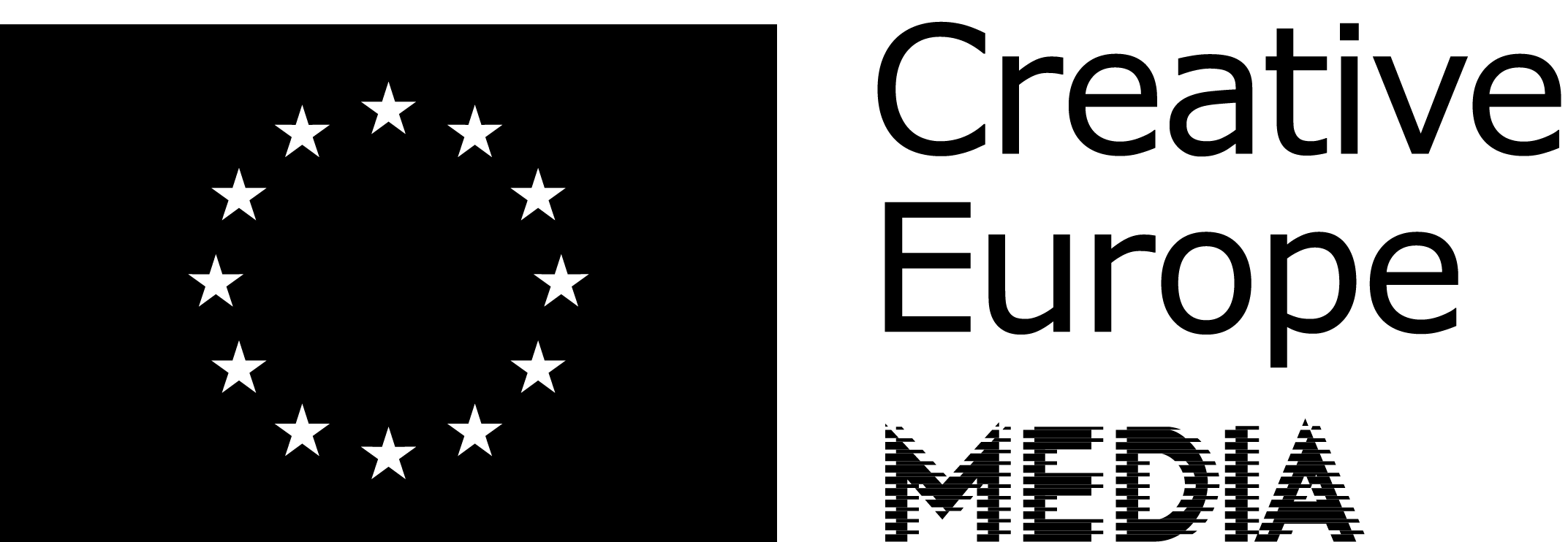
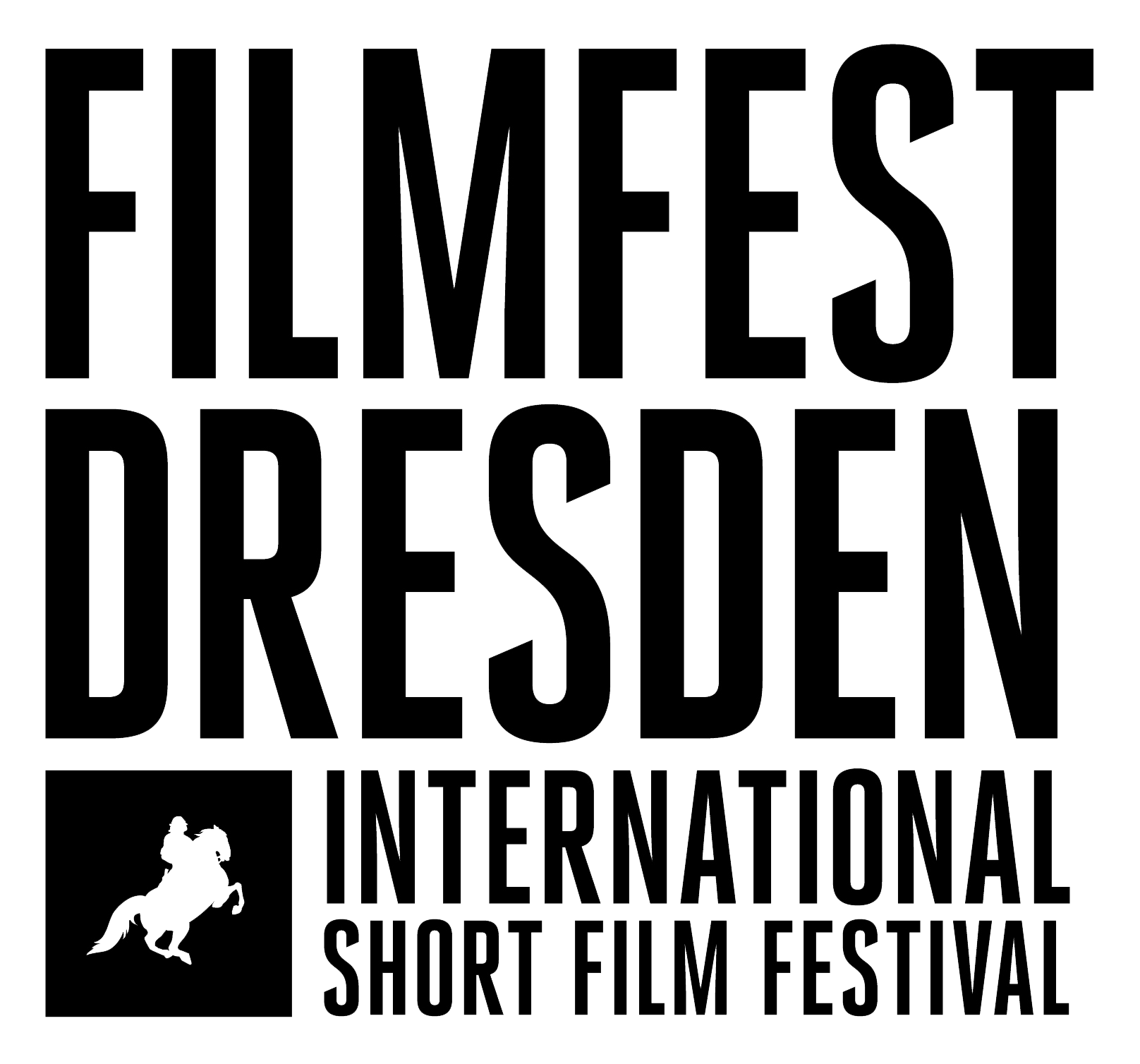
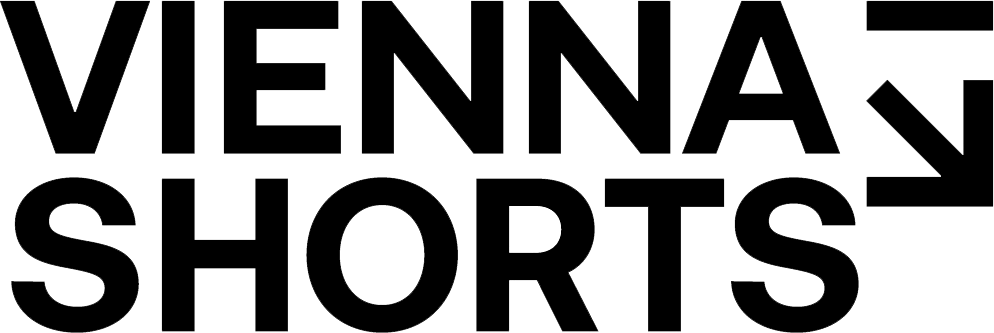
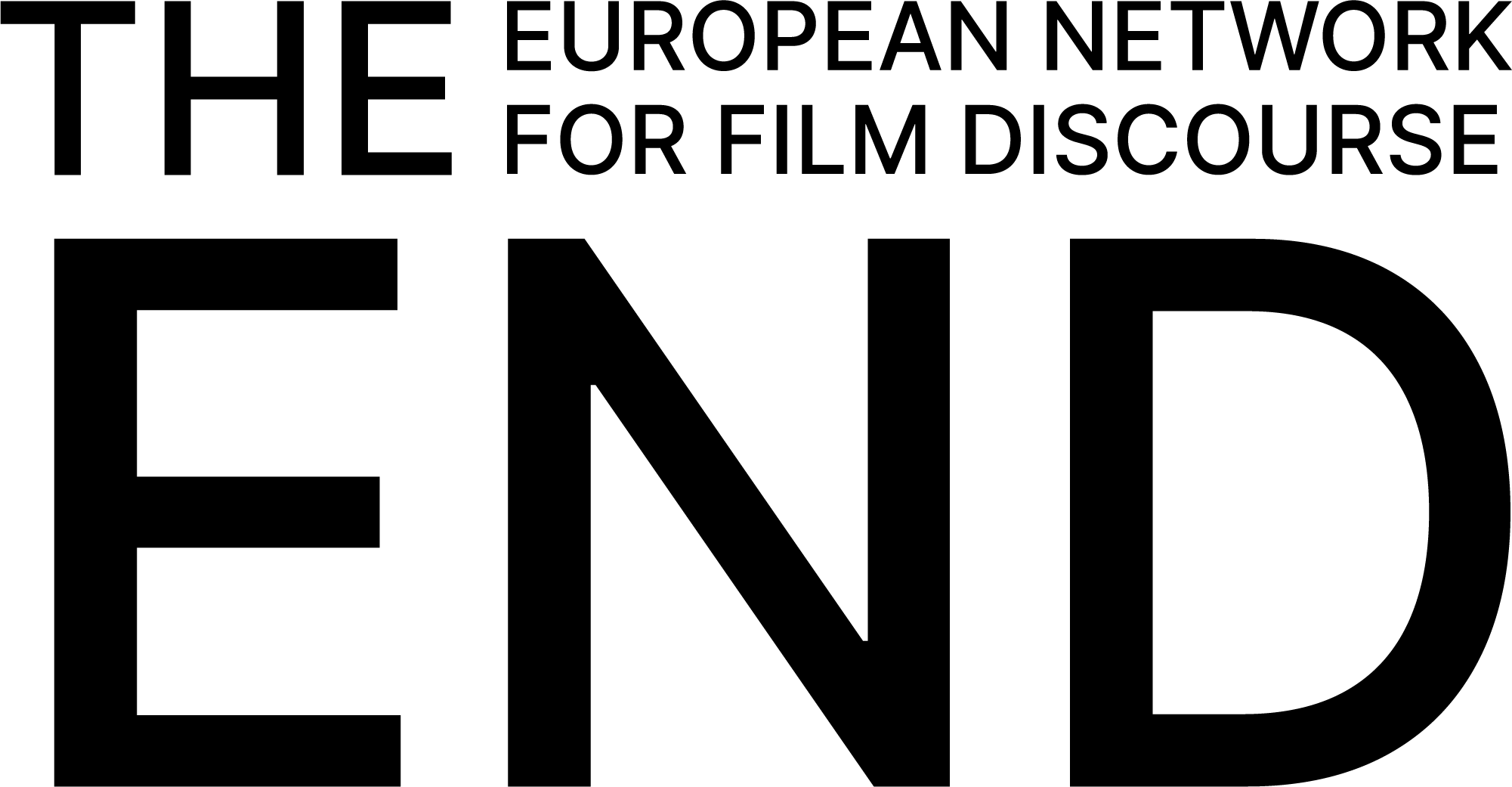
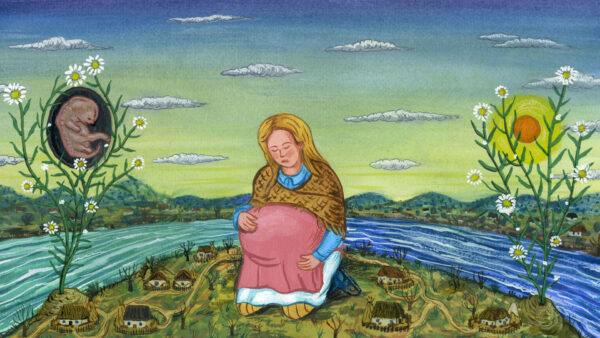
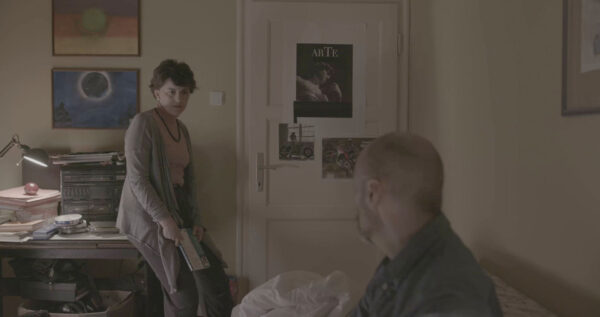
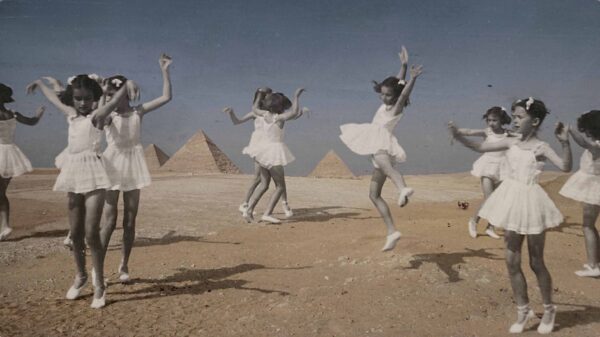

There are no comments yet, be the first!